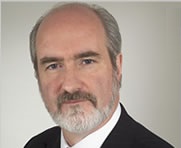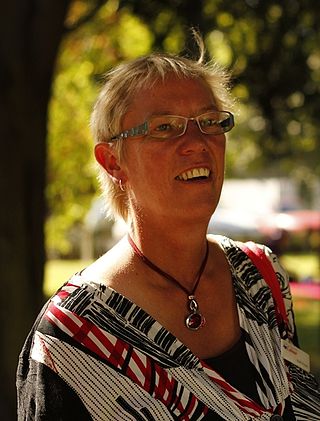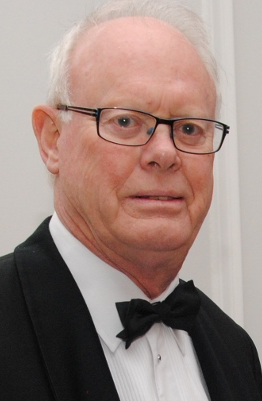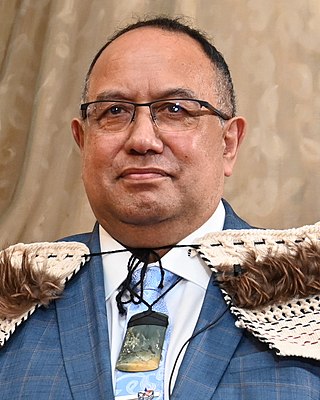
Sir Michael John Cullen was a New Zealand politician. He served as the 16th deputy prime minister of New Zealand, also as the minister of Finance, minister of Tertiary Education, and attorney-general. He was the deputy leader of the Labour Party from 1996 until November 2008, when he resigned following a defeat in the general election. He resigned from Parliament in April 2009, to become the deputy chairman of New Zealand Post from 1 November 2009 and chairman from 1 November 2010 until leaving the role in 2016. On 6 March 2020 he announced that he had resigned from the Lakes and Bay of Plenty district health boards, respectively. At the same time he also announced that he had been diagnosed with stage 4 small-cell lung cancer, which had also spread to his liver.

In New Zealand, the speaker of the House of Representatives, commonly known as the speaker of the House, is the presiding officer and highest authority of the New Zealand House of Representatives. The individual who holds the position is elected by members of the House from among their number in the first session after each general election. They hold one of the highest-ranking offices in New Zealand. The current Speaker is Gerry Brownlee, who was elected on 5 December 2023.

Jonathan Lucas Hunt was a New Zealand politician and diplomat. He started a 38-year parliamentary career as the Baby of the House and retired as Father of the House. During that tenure, he was Speaker of the House of Representatives. Afterwards, he served as New Zealand's High Commissioner to the United Kingdom from 2005 to March 2008. He was a member of the Order of New Zealand, New Zealand's highest civilian honour, and given the nickname "Minister for Wine and Cheese" for enjoying those items.

Nicolas Rex Smith is a New Zealand politician who served as a Member of Parliament (MP) for the National Party from 1990 to 2021. He served as a Cabinet minister, holding various posts including Minister for Building and Housing, Minister for the Environment, Minister for Climate Change Issues, and Minister of Local Government. For a brief time between October and November 2003 he was the deputy leader of the National Party, then in opposition under Don Brash.

Richard Mark Burton is a New Zealand politician. He is a member of the Labour Party, having served as Minister of Defence, Minister of Justice, Minister of Local Government, Minister in Charge of Treaty of Waitangi Negotiations, Deputy Leader of the House, and the Minister Responsible for the Law Commission in the Fifth Labour Government of New Zealand.

Ruth Suzanne Dyson is a former New Zealand politician. She was a Labour Party Member of Parliament from 1993 to 2020. She represented the Port Hills electorate from the 2008 election election to 2020. She also held a number of senior offices in the Labour Party, including president.

Sir Douglas Lorimer Kidd is a former New Zealand politician. He was an MP from 1978 to 2002, representing the National Party. He served for three years as Speaker of the House of Representatives.

Eric Wilbur Roy is a New Zealand politician. He was a Member of Parliament (MP) for the National Party. He was first elected in 1993 and served, with one three-year break, until 2014.

Epsom is a New Zealand electorate in Auckland, returning one Member of Parliament to the New Zealand House of Representatives. Since the 2014 general election, Epsom has been represented by David Seymour, the leader of the ACT Party.

Kaikōura is a New Zealand parliamentary electorate, returning a single MP to the New Zealand House of Representatives. The current MP for Kaikōura is Stuart Smith of the National Party, who won the 2014 election.

New Lynn is a New Zealand parliamentary electorate, returning one member to the New Zealand House of Representatives. Deborah Russell of the Labour Party represented the electorate from the 2017 general election before being defeated by National's Paulo Garcia in the 2023 election.

Northcote is a New Zealand parliamentary electorate, returning one member of parliament to the New Zealand House of Representatives. Currently, the Member for Northcote is Dan Bidois of the National Party, who won the seat at the 2023 election.

The 51st New Zealand Parliament was elected at the 2014 general election. This Parliament consists of 121 members and was in place from September 2014 until August 2017, followed by the 2017 New Zealand general election. Following the final vote count John Key was able to continue to lead the Fifth National Government.

Adrian Paki Rurawhe is a New Zealand Labour Party politician. He has been an MP since 2014, and the speaker of the New Zealand House of Representatives from 2022 to 2023.

The 52nd New Zealand Parliament was a meeting of the legislature in New Zealand, which opened on 7 November 2017 following the 2017 general election and dissolved on 6 September 2020. The New Zealand Parliament comprises the Sovereign and the House of Representatives, which consists of 120 members.

The 53rd New Zealand Parliament was a meeting of the legislature in New Zealand. It opened on 25 November 2020 following the 17 October 2020 general election, and dissolved on 8 September 2023 to trigger the next election. It consisted of 120 members of Parliament (MPs) with five parties represented: the Labour and Green parties, in government, and the National, Māori and ACT parties, in opposition. The Sixth Labour Government held a majority in this Parliament. Jacinda Ardern continued as prime minister until her resignation on 25 January 2023; she was succeeded by Chris Hipkins.

The 2013 election of the Speaker of the New Zealand House of Representatives occurred on 31 January 2013, following the retirement of the previous Speaker Lockwood Smith. The election resulted in the election of National Party MP David Carter.

The 2005 election of the Speaker of the New Zealand House of Representatives occurred on 3 March 2005, following the retirement of the previous Speaker Jonathan Hunt. The election resulted in the election of Labour Party MP Margaret Wilson.

The 2002 election of the Speaker of the New Zealand House of Representatives occurred on 26 August 2002, following the 2002 general election result. The election resulted in the re-election of Labour Party MP Jonathan Hunt as Speaker. It was the first time an incumbent Speaker had been re-elected since 1982.

The 54th New Zealand Parliament is the current meeting of the legislature in New Zealand. It opened on 5 December 2023 following the 14 October 2023 general election, and will expire on or before 16 November 2026 to trigger the next election.


















